Goddess Parvati
Last Updated on December 18, 2017 by Abigail Adams
In the Hindu tradition, it is believed that all goddesses originate from the divine feminine principle known as shakti (shock-tee). They are each, therefore, aspects of who we are as women. The goddess Parvati is the nurturing aspect of shakti. It is she who reminds us of the great but gentle power we all possess.
In India, Parvati is the most beloved goddess of all. In her is a true celebration of woman: unsurpassed beauty and sensuality; unwavering confidence; intense sexual passion; faithful love for her family; emotional depth; and profound, spiritual devotion. Her name means “of the mountain” and like all women, she is strongly identified with the earth and the forests.
Parvati was born during a time of troubling darkness, when the world was inhabited by powerful demons, and the warrior god Shiva had abandoned the earth. She was a knowing aspect of shakti, created specifically by the gods to draw Shiva back into the world. She was known as the Goddess, or daughter, of the Mountain.
Parvati loved Shiva from the time she was a small child and when she was told she was to wed him, she worked tirelessly to reach her goal of bringing Shiva out of the cave where he had taken refuge. She made the place one of beauty by sweeping the floors, decorating the walls with flowers, and generally being welcoming and kind to Shiva. She even chose to abandon the comforts of life herself, hoping that her shared understanding of the life of an ascetic would make Shiva come out of his cave.
Parvati remained fiercely determined. Alone in the forest, naked and exposed to the elements, she became mistress of her domain. She grew as strong as a lion and developed an unwavering devotion to the practice of yoga, until she was as spiritually strong as Shiva himself and began attracting the attention of the other gods through the heat of her spiritual energy. In some myths, Parvati was able to throw off her dark skin-which became another aspect of shakti, the destroyer goddess Kali-and channel her tremendous power until she was radiant from the inside out and her skin glowed like gold. Finally, Shiva, unable to resist the awesome and powerful being Parvati had become through her devotions, fell in love with her.
Following their mystical marriage, Shiva and Parvati enjoyed a passionate sexual union that is said to have rocked the heavens like an earthquake, but soon Parvati began to long for a child. Shiva, ever careless, gave her a scrap of cloth and told her to make a doll of it if she wanted something to care for. Parvati was so saddened that she began to cry and her magical tears, rich with her intention to become a mother, turned the cloth into a baby boy.
This magical child quickly grew strong and soon Parvati set him to guard the gates of her mystical palace. Shiva began to regret how he had treated Parvati and so returned to her to make amends. At the door stood a strange young man who refused entry to Shiva (not knowing this was his father). Enraged, Shiva chopped off the child’s head. Parvati was so stricken with grief and anger that the gods were afraid. To comfort her, Shiva promised to find the child the head of the first creature he saw, which was the elephant. Thus, the god Ganesha, god of devotion and the ability to overcome spiritual obstacles, was born of Parvati’s grief. Her unique gift to her son was the ability to be both a warrior and a dancer and thus Ganesha became the god of the arts under his mother’s tutelage.
Perhaps most remarkable, Parvati became not only Shiva’s consort, but his voice to the people. She was able to transform his wisdom into the words and actions that common devotees could understand and make use of. In Hindu mythology, she represents the dynamic tension that exists between the earthly realm and the spiritual one, a critical tension experienced by all devoted Hindus. She is often credited with being the source of all the power in the universe and it is said that without her, Shiva could not carry on his duties of both creation and destruction.
Parvati represents the many faces of women’s lives and wisdom. She is a nurturer of the home, a committed wife and mother, a devoted spiritual practitioner, and a wise counselor. She represents the part of our self that creatively brings forth nourishment even in the midst of what seems to be rejection and disapproval. She is a wonderful affirmation that there are no limits to what a woman can do when she uses her spiritual energy in the pursuit of any goals she chooses.

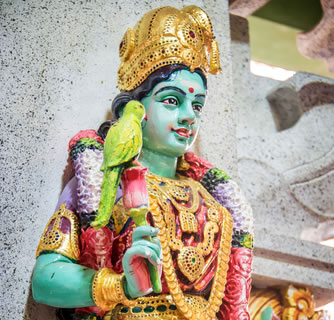
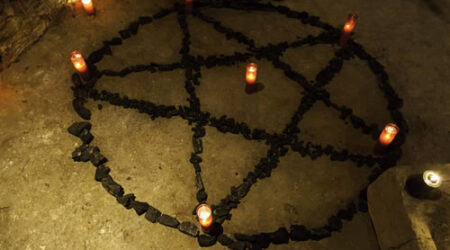


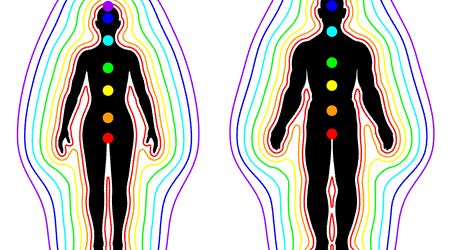

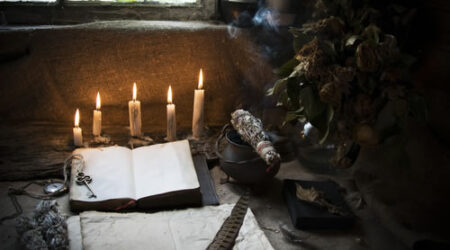
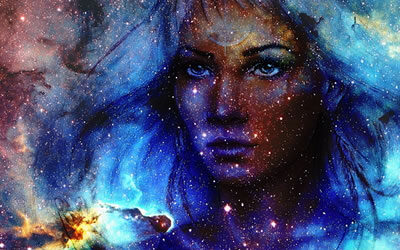

Leave a Reply